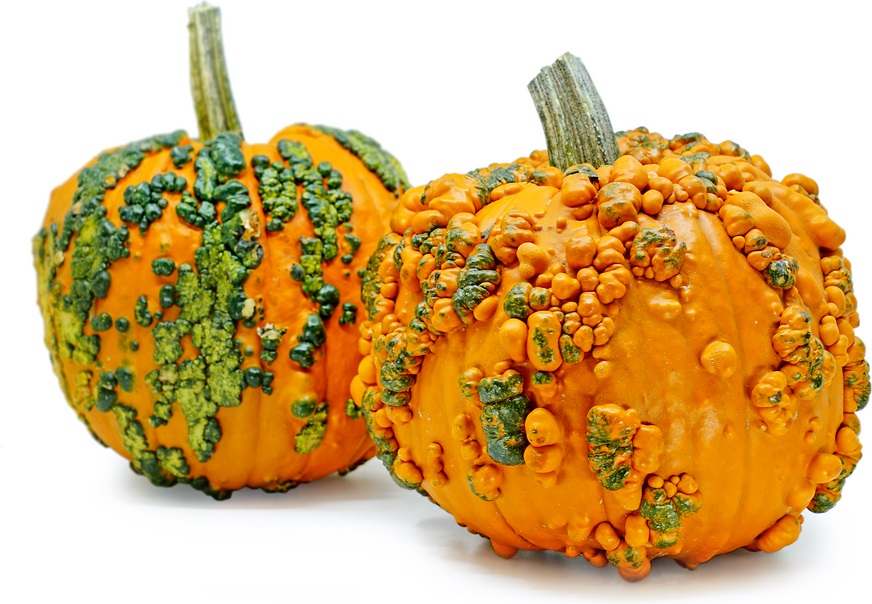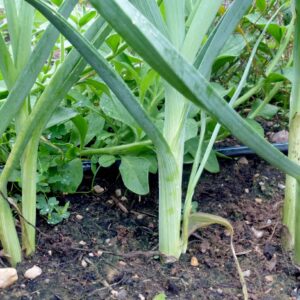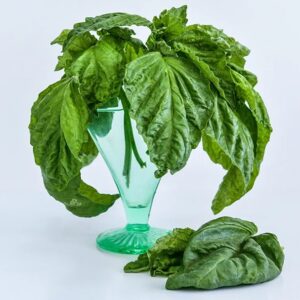Knucklehead Pumpkin
The Knucklehead pumpkin is a unique and visually striking variety known for its distinctive
knobby, warty appearance.
The Knucklehead pumpkin is a unique and visually striking variety known for its distinctive
knobby, warty appearance.
Description
The Knucklehead pumpkin is a unique and visually striking variety known for its distinctive
knobby, warty appearance. Here’s a detailed description:
1. **Size:** Knucklehead pumpkins are medium to large in size, typically weighing between 10 to 20 pounds (4.5 to 9 kg). They have a round to slightly flattened shape, with irregular, protruding knobs and warts covering the surface.
2. **Color:** When fully ripe, the skin of Knucklehead pumpkins displays a deep, rich orange color, often with mottled green patches and darker, contrasting warts. The unique coloration and texture make them a visually intriguing addition to fall displays and decorations.
3. **Texture:** The skin of Knucklehead pumpkins is rough, bumpy, and covered with knobby
protrusions and warts, giving them their characteristic appearance. Despite their rough exterior, the flesh beneath is smooth, dense, and fine-grained, with a vibrant orange color.
4. **Flavor:** Knucklehead pumpkins have a sweet, mild flavor with subtle nutty undertones. The flesh is tender and moist, making it ideal for roasting, baking, steaming, and pureeing. It pairs well with a variety of spices and ingredients, making it a versatile ingredient in both savory and sweet dishes.
5. **Usage:** While Knucklehead pumpkins are prized for their decorative appeal, they are also
valued for their culinary qualities. Their unique appearance makes them a popular choice for fall
decorations, centerpieces, and Halloween displays. Additionally, their sweet, flavorful flesh can be used in a variety of recipes, including soups, stews, pies, muffins, and other baked goods.
6. **Nutritional Benefits:** Like other pumpkin varieties, Knucklehead pumpkins are rich in vitamins, minerals, and antioxidants. They are low in calories and fat, high in dietary fiber, and a good source of vitamin A, vitamin C, potassium, and beta-carotene.
Overall, the Knucklehead pumpkin is a visually intriguing and versatile variety prized for its unique appearance, sweet flavor, and culinary versatility. Whether used as a decorative accent or cooked into delicious dishes, it adds a touch of whimsy and flavor to fall festivities.
To plant Knucklehead pumpkins, follow these steps:
1. **Timing:** Plant Knucklehead pumpkin seeds outdoors after the danger of frost has passed and the soil has warmed up to at least 60°F (16°C). In most regions, this is typically around late spring or early summer.
2. **Location:** Choose a sunny spot in your garden with well-draining soil. Knucklehead pumpkins require full sunlight to thrive, so ensure the chosen location receives at least 6-8 hours of direct sunlight per day.
3. **Soil Preparation:** Prepare the soil by loosening it to a depth of at least 12 inches (30 cm). Incorporate organic matter such as compost or well-rotted manure to improve soil fertility and
drainage. Knucklehead pumpkins prefer slightly acidic to neutral soil with a pH between 6.0 and 7.0.
4. **Planting Seeds:** Create mounds or hills of soil that are about 3 feet (0.9 meters) in diameter and spaced 4-6 feet (1.2-1.8 meters) apart. Plant 4-6 Knucklehead pumpkin seeds in each mound, spacing them evenly and planting them about 1 inch (2.5 cm) deep.
5. **Watering:** Keep the soil consistently moist but not waterlogged. Water the pumpkin seeds
immediately after planting and continue to water regularly throughout the growing season, especially during dry spells. Avoid overhead watering to prevent fungal diseases; instead, water at the base of the plants.
6. **Thinning Seedlings:** Once the Knucklehead pumpkin seedlings have emerged and developed their first true leaves, thin them to leave the healthiest and strongest seedling per mound. This ensures that each plant has enough space to grow and produce large pumpkins.
7. **Mulching:** Apply a layer of organic mulch, such as straw or shredded leaves, around the base of the Knucklehead pumpkin plants. Mulch helps retain soil moisture, suppresses weeds, and regulates soil temperature.
8. **Support:** While Knucklehead pumpkins can sprawl along the ground, you may choose to provide support for the developing fruit. Place a wooden board or piece of cardboard under each
pumpkin to lift it off the ground and prevent rotting. Alternatively, use slings made from fabric or
pantyhose to support the growing pumpkins.
9. **Fertilization:** Pumpkins are heavy feeders and benefit from regular fertilization. Apply a balanced fertilizer or compost tea every few weeks throughout the growing season to promote healthy growth and fruit development.
10. **Harvesting:** Knucklehead pumpkins typically mature in 90-110 days after planting, depending on the variety and growing conditions. Harvest the pumpkins when they have reached their full size and have developed their characteristic knobby, warty appearance. Use pruning shears or a sharp knife to cut the pumpkins from the vine, leaving a few inches of stem attached.
By following these planting instructions, you can grow healthy and productive Knucklehead pumpkins in your garden, perfect for both culinary use and decorative purposes!





